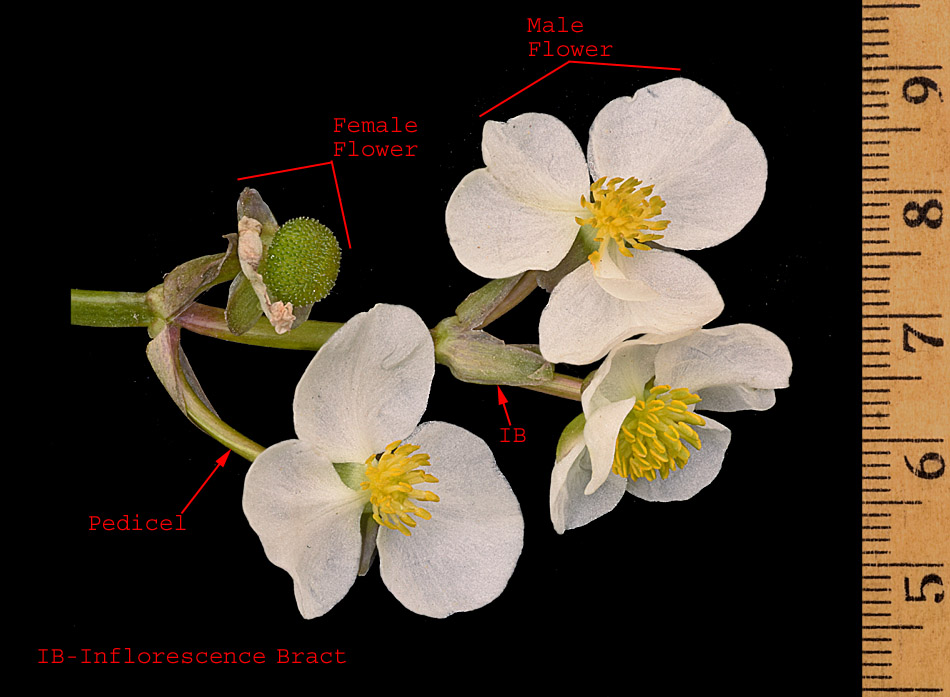Sagittaria cuneata

Arum-Leaved Arrowhead
Inflorescence
4.3
Miles North on Veillardville Road, West of Hudson Bay
16-July-2024
Flowers occur in whorls along the rachis, with
male flowers usually distal to female flowers. However, sometimes both
male and female flowers can occur in the same whorl as is the case in the
proximal whorl in the above specimen. Note the female flowers are
pedicellate. Note also the many stamens on the male flowers.
The following items are taken from keys in Rushes,
Bulrushes & Pondweeds plus the remaining Monocots of Saskatchewan by Vernon L.
Harms, Anna L. Leighton and Mary A. Vetter.
 |
Sagittaria: Answers to key questions
leading to this genus.
 | Emergent leaves mostly sagittate or hastate;
inflorescences usually racemes with whorls of flowers, rarely panicles;
pistils and achenes spirally arranged on convex receptacles, very
numerous; flowers imperfect; stamens 7-30; NOT [Emergent leaves
linear-lanceolate or elliptic to ovate; inflorescences panicles with
whorls of branches; pistils and achenes arranged in a single ring around
margin of flat receptacles, usually fewer than 20; flowers perfect;
stamens few, 6-9]
|
|
 |
Cuneata: Answers to key questions
leading to this species (in genus Sagittaria).
 | Pistillate flowers distinctly pedicellate;
fruiting pedicels 5-35 mm long; achene beaks if curved, then <0.8 mm
long; filaments glabrous; NOT [Pistillate flowers sessile to subsessile;
fruiting pedicels absent; achene beaks recurved, 0.8-1.4 mm long;
filaments pubescent to tomentulose] |
 | Achene beaks either horizontal and 1-2 mm long,
or erect and immeasurably short (<= 0.4 mm long); fruiting heads
<= 17 mm wide (in our specimens < 15 mm wide); inflorescence
bracts delicate to membranous; leaves emergent, floating or submersed;
NOT [Achene beaks ascending apically, 0.4-1.7 mm long; fruiting heads
(12) 15-25 mm wide; inflorescence bracts firm; leaves emergent] |
 | Achene beaks erect, 0.1-0.4 mm long; inflorescence bracts usually long and narrow
(up to 40 mm long and lance-attenuate or acute); leaves emergent,
floating or submersed with submersed leaves often linear with phyllodial
petioles; NOT [Achene beaks horizontal,1-2 mm long; inflorescence bracts
usually short and wide (3-8 (ours to 10) mm long and elliptic to
lanceolate); leaves usually emergent] |
|